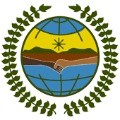 by Brendan Welsh
by Brendan Welsh
The Twelfth Session of the Permanent Forum on Indigenous Issues is currently meeting at the United Nations. On May 22, I had the pleasure of attending the event on Education and Indigenous Youth, organized by the Permanent Missions of Australia and Ecuador. Mr. Joseph Elu, a Chairperson of the TSRA (a branch of the Australian government that serves the Melanesian indigenous population of the Torres Strait), spoke about what his office does to promote education amongst the indigenous youth on the islands. “People say Australia is a first world country but our indigenous people are very behind in health, education, and economics,” he said. “Indigenous language, art, songs, dances, and spiritual beliefs are integral to our culture, and we want these young people to maintain their culture wherever they go.” The TSRA funds scholarships, and promotes the Australian Rural Leadership Program as part of their endeavor to serve indigenous children in the Torres Strait.
Ms. Tania Pariona, of the National Organization of Andean and Amazonian Women of Peru, then spoke about how difficult it can be for Quechuas to adapt to American urban life. “When my brother went to New York and addressed a bus driver as ‘uncle,’ the bus driver was confused and became mad at him. My brother worried he had done something wrong, but we Quechuas grow up calling everyone mother, father, uncle, aunt, sister, and brother.” She went on, “In America, when we get degrees from school, we think we know everything, and we become professionals in our own heads. We value people who have certificates from schools over our own grandparents.” The Quechua educational model, according to Tania, includes, “a policy of cultural and intergenerational exchange,” in which “students listen to their grandfathers and grandmothers about how to manage water, create ceramics, cook, and produce herbal medicine.”
Ms. Mirian Masaquiza, said that growing up Quechua outside of Quito, Ecuador, at “the door of the Amazons” posed unique challenges. “When I moved to the city I suffered much discrimination,” she said. “From when I was 8 years old I have been hearing about human rights. My father,” who was present in the audience, “was in prison for 6 years because the government discriminated against him. That’s when I planned to become a lawyer so this wouldn’t happen to other indigenous people.” Mirian has seen and contributed to a great deal of progress for indigenous rights in her years at the UN, which include being a member of the cabinet of 63rd General Assembly president Brockmann, and the associate social affairs officer for the Secretariat of the UN Permanent Forum on Indigenous Issues. “I watched four countries vote against the permanent forum, but now Australia is here, rectifying its position,” a comment which elicited a smile from Mr. Elu. “My job is to be here, running through these hallways, reminding our brothers, sisters, colleagues, and diplomats, to integrate indigenous people into their policies, particularly indigenous women and youth.” Through tears she added, “my father has often asked me exactly what I do at the UN and I am honored that he is here today to hear my answer.”